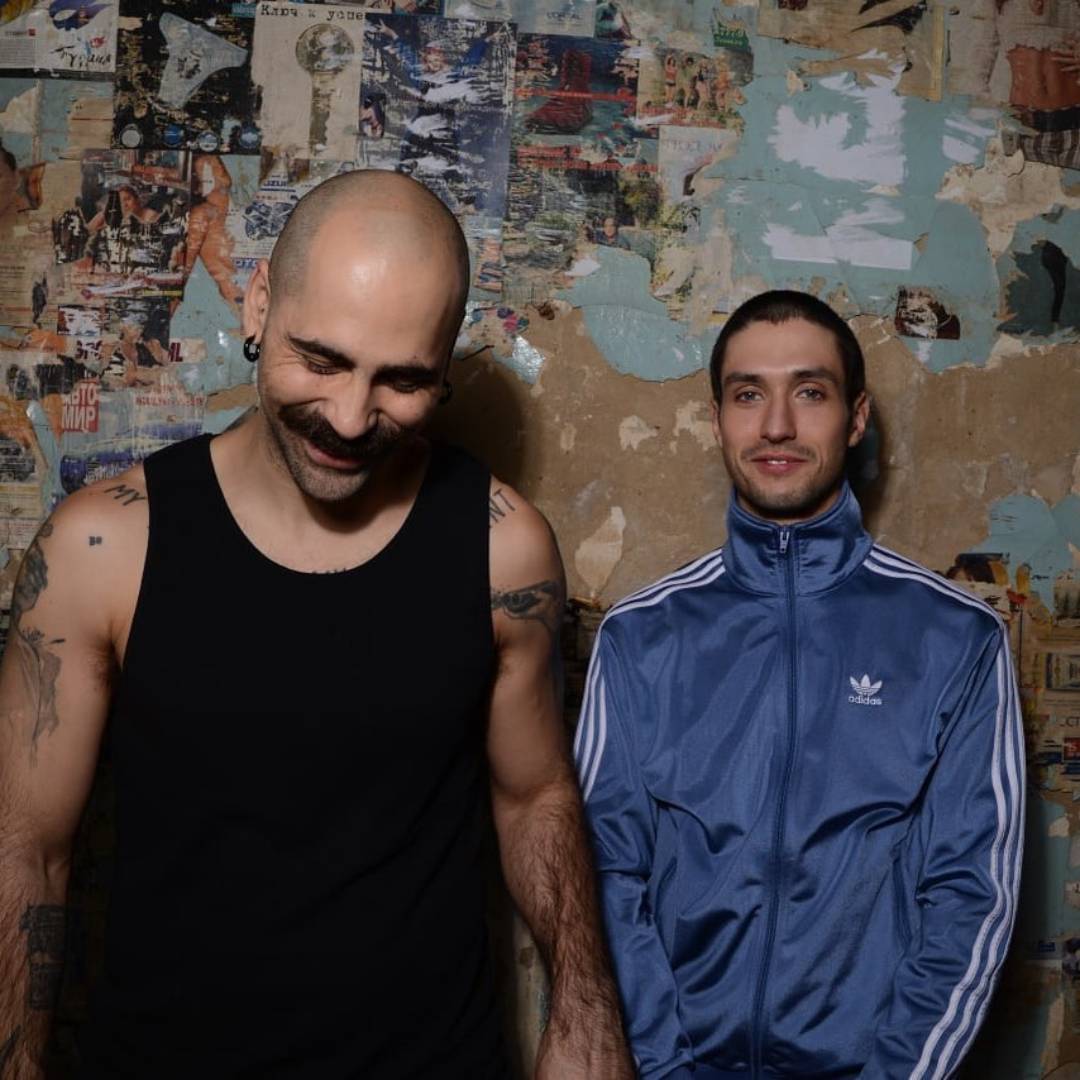Image via Bad Zu/FaceBook
Michael McKinney understands the cultural importance of Kreayshawn’s “Gucci Gucci.”
Club music has always been a global proposition. Attempting to map its stylistic contours results in all sorts of dizzying leaps: Detroit to Berlin, Durban to London, Rio de Janeiro to Miami, Moscow to Michigan. Electronic-music duo Bad Zu—a.k.a. DJ-producer Philipp Alexandrov and drummer Alexander Malyshev—understand this. The project started from a place of friendship. The pair—one a club-music DJ, the other a punk drummer—both worked in Moscow’s underground music scene, each focused on their own projects. With Bad Zu, they joined forces: two veterans of their respective styles, joined by a preference for sheer weight above all else. The duo rocketed through Moscow’s underground circuit, matching its appetite for gritted-teeth dance music with equally hefty rhythms. Their music was centered around sheer energy; anything else was beside the point.
Bad Zu started as a purely live act, but it wasn’t long before they started thinking wider: they began looking across the globe, wrapping barbed wire around high-energy rhythms from umpteen club-music traditions. Their music crosses stylistic lines with glee, creating a veritable kaleidoscope of pitch-black dancefloor psychedelia. Their first LP, 2018’s Zupreme, borrowed heavily from Durban’s gqom scene—an icy kind of minimalism, all kicks and snares and black holes—and fused it with the bone-crunching approach of Moscow’s local rave styles. It is both spare and weighty, each drum landing like a miniature meteorite.
Since then, the duo’s ambitions, and stylistic range, have only scaled up. What started as an opportunity for a drummer and a DJ to play together has turned into a full-fledged live act, with an everything-goes approach to their improvisation and songwriting. In their music, they look towards big-tent rave artists and hyper-local club scenes the world over, pulling from styles as varied as hard drum, two-step, reggaetón, and industrial techno. Their latest LP, titled Bad Luck, is their boldest record yet. At its core, you’ll find the same apocalyptic minimalism that has always fueled their work, but it’s a bit different this time around: louder, meaner, gnarlier.
The record is built upon context collapse, with styles blurred together until they shift into something that feels radically new. Air-raid sirens wail over drone-metal guitars and drum programming ripped from Belo Horizonte’s airwaves; cragged dubstep rhythms provide a foundation for world’s-end ambience; gunfire and traditional folk musics crash into each other; “The Ha Dance” gets cast into a vat of grime. This is what “world music,” especially in the context of club tracks, sounds like now. It’s the sound of timelines melting into each other, turning into a mélange of histories and sounds and styles sounding like so many YouTube clips playing at once. The record is claustrophobic and near-uniformly dark, to be sure: Bad Luck is informed by the traumas of the past few years. But it’s joyous, too, in its own way. It’s a celebration of skull-cracking dancefloor styles, an effort to keep ravers moving even as the rest of the world keeps falling apart.
In advance of the release of Bad Luck, we got a chance to connect with Bad Zu, digging into the group’s origins, their connections to global club music, the challenges of integrating live percussion into their sound, and drumming in a time of state collapse.
(This interview has been condensed and lightly edited for clarity.)

